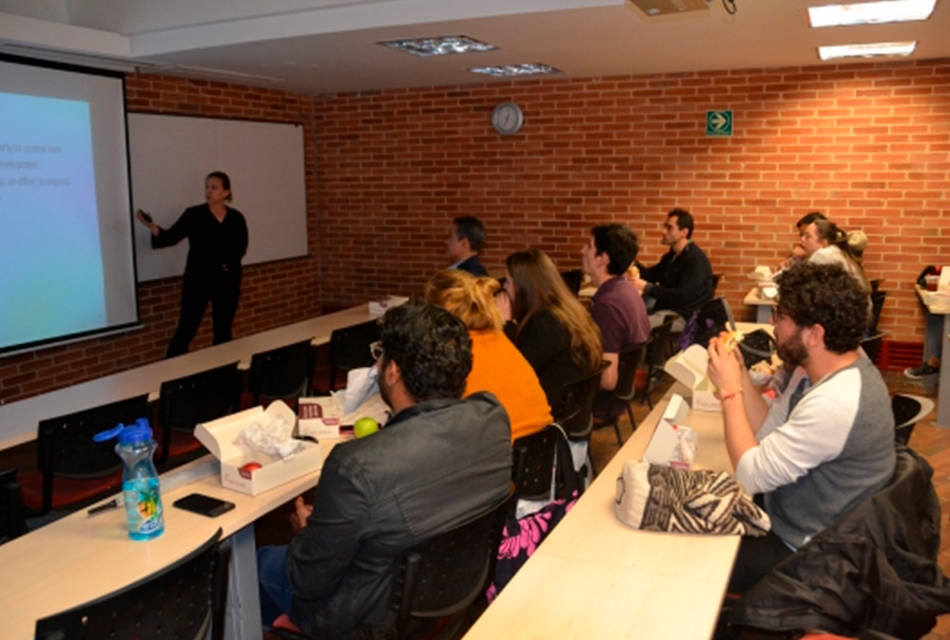Investigadora Senior de EfD Colombia Marcela Ibáñez en el seminario de economía ambiental en la Universidad de los Andes

Fecha:
Miércoles, 11 Marzo 2020
Lugar:
Salón O-302. Universidad de los Andes
Hora:
12:30 a 2:00 pm.
EfD Colombia organizó junto con CODS (Centro para los Objetivos de Desarrollo Sostenible) el primer seminario de economía ambiental del año 2020 en la Universidad de los Andes. El seminario se llevó a cabo el 11 de marzo y la expositora fue la Investigadora Senior de EfD Colombia, Marcela Ibáñez, mientras realizaba una investigación de campo en Colombia.
El título del seminario fue: “The intrinsic value of decision making: Evidence from a Charitable Giving Experiment in Egypt (joint work with Ghida Karbala and Gerhard Riener)”
Abstract:
The freedom of choice is a fundamental aspect of individuals’ social, economic and political lives. Despite the significant value attached to the freedom of choice, some societies, de-facto, restrict the right to decide to men while women assume a subordinate role. In this paper we address three fundamental questions: Do men and women attach different instrumental values to decision rights? Does this value increase or decrease when individuals decide on behalf of others? and does the identity of the other matter? To investigate these questions we conduct a lab in the field experiment in Cairo, Egypt with a representative sample of 640 individuals of which 160 where married couples. In a first step, subjects made donation decisions after being paired either with their spouses, or a randomly chosen participant from the same population. In a second step, subjects were asked anonymously to vote on how strongly they would like their donation preferences to be implemented; the decision of the subject with the higher indicated number was then realized for payment. Results show that both men an women The results show that male and female participants give equal value for decision rights when paired with strangers. Yet, married women paired with their spouse report significantly higher willingness to give up their decision rights. Our findings suggest that conformity with social expectations is an important factor in explaining female lower willingness to make decisions.